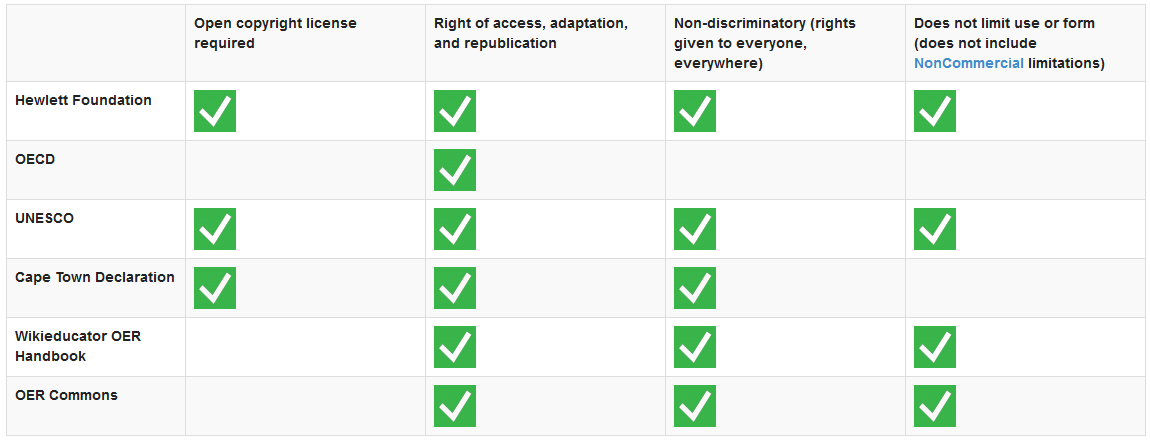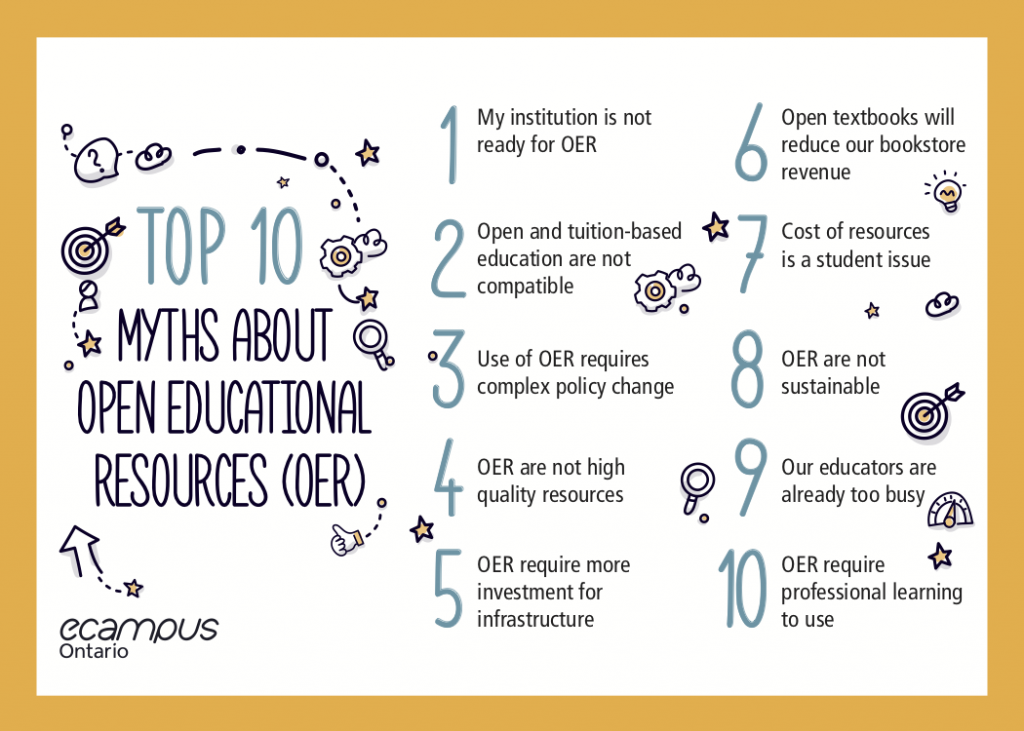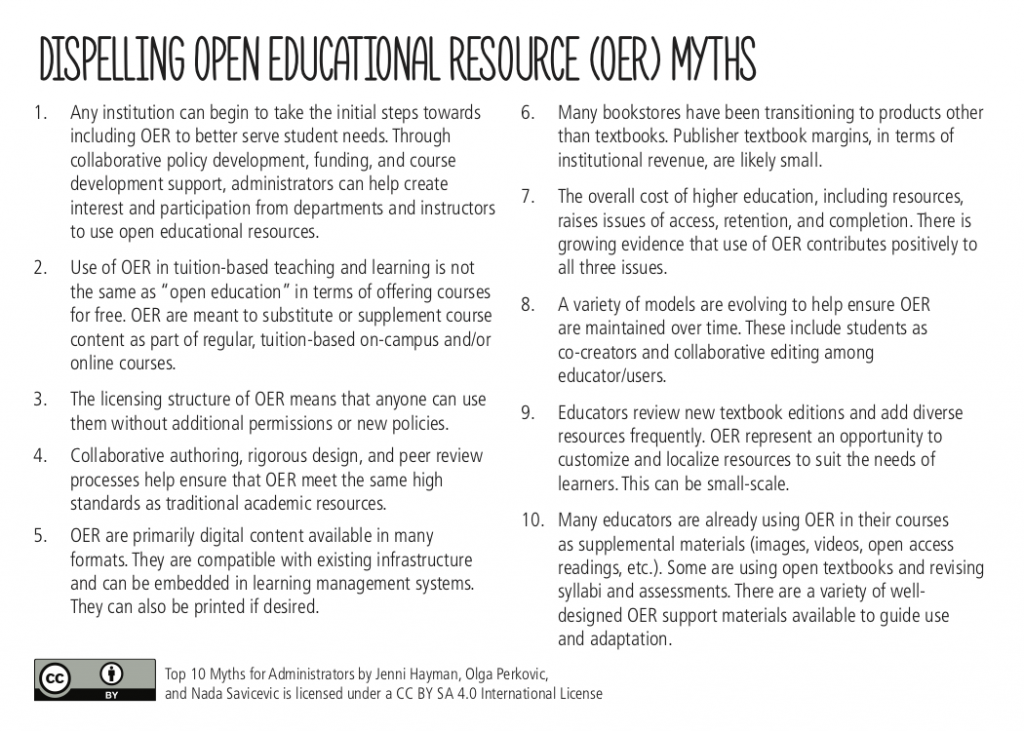1 OER definition
Definition
The term OER (Open Educational Resources) was first defined by UNESCO in 2002 as “any type of educational materials that are in the public domain or introduced with an open license” and can “range from textbooks to curricula, syllabi, lecture notes, assignments, tests, projects, audio, video and animation.”
Creative Commons created the table below to compare different definitions of OER from various sources.

Although many people think of OER and Open Education as generally referring to online-only material and courses, this is not the case. Many open textbooks, for example, are also available in hard copy, or can be printed if a user prefers.
The 5 Rs of Openness
As seen in the table above, OER differ from traditional educational resources in their licensing and permissions. Namely, the “open” aspect of OER can be defined by David Wiley’s 5R Framework.
Retain
the right to make, own, and control copies of the content
Reuse
the right to use the content in a wide range of ways (e.g., in a class, in a study group, on a website, in a video)
Revise
the right to adapt, adjust, modify, or alter the content itself (e.g., translate the content into another language)
Remix
the right to combine the original or revised content with other open content to create something new (e.g., incorporate the content into a mashup)
Redistribute
the right to share copies of the original content, your revisions, or your remixes with others (e.g., give a copy of the content to a friend)
*This material was created by David Wiley and published freely under a Creative Commons Attribution 4.0 license at: http://opencontent.org/blog/archives/3221
OER Myth busting
When considering using OER, you may have encountered some common Myths related to OER. eCampusOnartio has created this handy postcard to address many of these OER Myths.


For more information about OER myths, the OER Policy for Europe has addressed many more concerns on their OER Myth busting! site.
Attributions
The OER table at the top of this page has been copied from Creative Commons and is used under a CC BY 4.0 license.
The 5R Framework on this page was retrieved from SFU’s Open Educational Resources research guide and is used under a CC BY 4.0 license.
The Top 10 Myths for administrators was retrieved from eCampus Ontario Resource Drive and is licensed under a CC BY SA 4.0 International License.
This chapter is adapted from the Faculty OER Toolkitby BCcampus is used under a CC-BY 4.0 International license. Download this book for free at http://open.bccampus.ca

